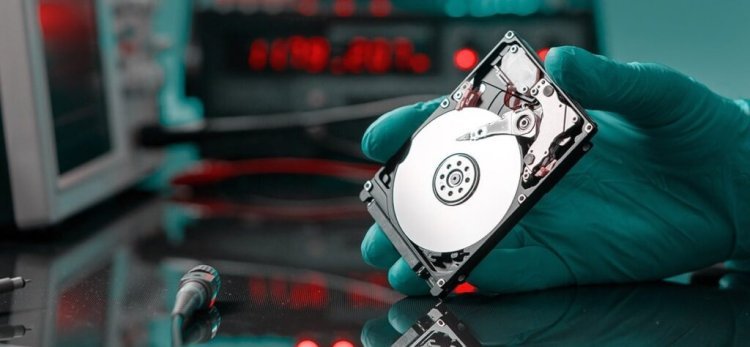Hard Drive Recovery: What to Expect and How to Proceed
Learn what to expect and how to proceed with hard drive recovery. Get expert guidance and tips to recover your data from a damaged or failed hard drive.

Introduction
Losing valuable data due to a hard drive failure can be a distressing experience. However, with the right knowledge and approach, there is a possibility of recovering your precious files. In this blog post, we will explore the process of hard drive recovery, what to expect when dealing with this situation, and how to proceed to increase the chances of successfully retrieving your data.
Section 1: Understanding Hard Drive Failures and Causes
Before delving into the recovery process, it is crucial to understand the common causes of hard drive failures. Mechanical failure, accidental deletion, virus attacks, power surges, and natural disasters are among the primary culprits. By analyzing the root cause, you can determine the appropriate recovery steps and possibly prevent such incidents in the future.
Section 2: Signs of a Failing Hard Drive
Early detection of a failing hard drive can significantly improve the chances of successful data recovery. Warning signs such as unusual noises, slow performance, frequent crashes, or the inability to access specific files are indications that your hard drive may be on the verge of failure. Recognizing these signs promptly can help you take the necessary action before it worsens.
Section 3: Precautions Before Attempting Data Recovery
When faced with the possibility of data loss, it is vital to take certain precautions to prevent further damage. Firstly, you should stop using the affected hard drive to avoid overwriting the existing data. Additionally, avoid attempting DIY recovery methods if you lack experience in handling sensitive hardware components. It is best to seek professional help to ensure a higher chance of successfully recovering your data.
Section 4: Professional Data Recovery Services
When all else fails, professional data recovery services can be your last line of defense. These experts possess the technical expertise and state-of-the-art tools necessary to recover data from failed hard drives. They employ various techniques, including physical repairs, logical recovery methods, and specialized software, to retrieve your lost files. It is important to choose a reputable and reliable data recovery service provider to ensure the confidentiality and integrity of your data.
Section 5: DIY Data Recovery Methods
For tech-savvy individuals, DIY data recovery may be an alternative option. However, it is essential to note that these methods should only be attempted if you are confident in your understanding of the process. Software tools such as data recovery programs can assist in recovering deleted or lost files. However, it is crucial to follow the instructions carefully and avoid further damage to the hard drive or data.
Section 6: Backup and Preventive Measures
To avoid the stress and frustration of hard drive failures, it is imperative to establish regular backup protocols. Backing up your data to external storage devices or cloud-based platforms on a consistent basis can serve as a safety net in the event of data loss. Additionally, maintaining a secure and up-to-date antivirus software, a stable power supply, and proper handling of the hardware can help prevent future hard drive failures.
Conclusion
In conclusion, hard drive recovery is a complex and delicate process that requires caution and expertise. Understanding the causes of hard drive failures, recognizing warning signs, and taking necessary precautions can increase the chances of successful data recovery. Whether opting for professional services or attempting DIY methods, it is crucial to consider the risks and the value of your data. Remember to establish a solid backup system and preventive measures to minimize the impact of future hard drive failures. With patience and the right approach, you may be able to retrieve your lost files and avoid future data loss predicaments.
What's Your Reaction?










![Wireless Connectivity Software Market Size, Share | Statistics [2032]](https://handyclassified.com/uploads/images/202404/image_100x75_661f3be896033.jpg)



